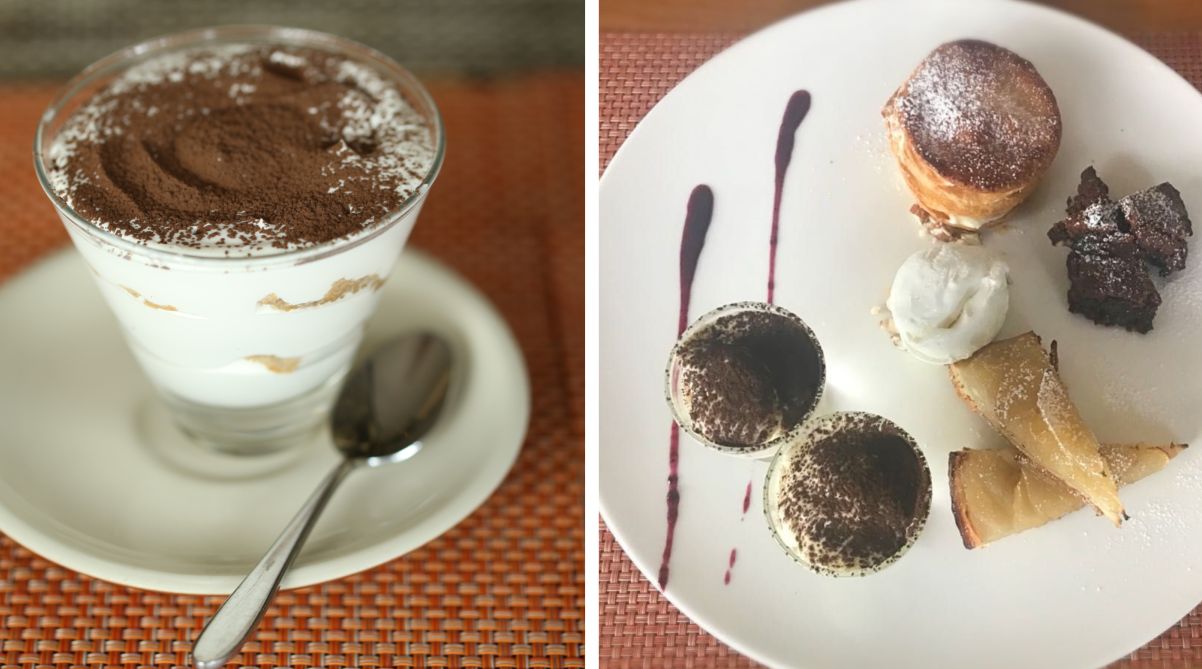The picture of the dining table brings before us images of mouth-watering and sumptuous delicacies, and a number of delicious dishes truly regale our taste buds once we are at it. But if we go through the history of the words associated with the dining table, the pleasure will be hardly less. This list includes not only things and articles that we need to savour our meal properly, but also the various dishes and the ingredients required for preparing them, and the connoisseur for enjoying the same.
To begin with the “table” and “plates” essential for serving our meals have a little background to them. The word “table” arrived in England through Old French, and comes from the Latin “tabula” which meant a “board”. The Greek term “platys” (“flat”) and the Latin “platus” with the same meaning were the forefathers of our “platter” and “plate”. The word “fork” began in Old English as “forca” which meant “pitch fork”. When the word “spoon” was Old English “sp?n”, it meant a chip or splinter of wood and later on, a utensil.
Early in English tradition, sweethearts would exchange spoons that were prettily carved or engraved with lovers’ hands. This is likely to be the origin of the word “spoon” and “spooning”, which have to do with matters of the heart. “To spoon” of course, is to make silly love, to be sweet on, and such; and some bawdy souls have claimed that the word got its significance because lovers are supposed to lie together intimately like spoons in a drawer!
We may have wondered at times why table knives are rounded at the ends. The Duc de Richelieu, cardinal and statesman of France, was responsible for this. At that time, table knives were pointed, but at a party of his, he saw one of his guests pick his teeth with a knife, and the next day we had his steward file off all the points. So, by around 1700, everyone else wanted rounded knives and they are still with us. The word “knife” itself has little history beyond this story. It was spelled “cnif” in Old English, and from that point back, the origin of the name of this early implement disappears into the mists of centuries.
As cakes are to ale, so a gourmet is to dining table affairs. No discussion of food items or table implements or manners can be complete without a mention of the “gourmet” who must grace the table and enjoy the meal. When this aristocratic diner is testing some sumptuous dishes like chicken afghani or chilly fish, it might make him less self-satisfied to know that he was once merely a “groumet” or a “groom” for the horses.
Later on, the term “groumet”, now “gourmet”, was applied to any of the lesser servants of a household, and also to the shopboys who developed into professional wine-testers. Thus it was not a far cry from the wine-tester to the connoisseur of food delicacies in general. From the word “gourmet”, the French derived “gourmand”, meaning gluttonous, but we have taken it over as a noun to mean someone fond of good food.
A sumptuous feast can remain incomplete, for many, without a dose of alcohol. But originally the word meant “bluing for the eyes”. Queen Cleopatra of Egypt darkened and lengthened her eyebrows with antimony paste, and the Arabic word for this was “al-koh’l” meaning the (“al”) powdered antimony (“kohl”). The word came into English as “alcool”, a name for any fine powder or extract. Thus “alcool of wine” was for drinking. It was not until the 19th century that the word “alcohol” was used only to signify drinking.
When we are eating our morning “cereal”, we are paying a small tribute to an ancient goddess. In 496 BCE, the Roman countryside was cursed by a terrible drought. The priests of the day turned to the sibylline oracle for help. As a result of this divine consultation, the priests reported that a new goddess, Ceres, must be adopted, and they recommended immediate sacrifices to be made to her so that she would bring rain to the land. In the end Ceres became the protector of the crops. To insure a good harvest the first cuttings of the corn were always sacrificed to her. The Latin adjective “cerealis” (which meant “of Ceres”) gave us our word “cereal”.
The word “toast” has come from the Old French verb “toster”, meaning “parch burn or roast”. A man drinks a “toast” when he lifts his grass to someone’s health. This use of the word “toast” comes directly from a custom that was common in the time of Shakespeare, when they often put a piece of spiced or toasted bread in certain drinks, notably in wine or ale. Hence today, we drink a toast.
If you are lover of good food and wine and if you take a fastidious and sensuous delight in your pleasure, it would be correct to call you an “epicure”, although the use of this word in this sense is a gross slander on the original Epicureans. The Greek philosopher, Epicurus, taught moderation in all things. Pleasure, he said, was the highest good, the price of every joy, he advised, is a certain quota of pain, and so he instructed his pupils in temperance.
When the English-speaking people took over the word, however, they seized upon the single idea of pleasure, and now the words “epicure” and “epicurean” have the “eat, drink and merry” flavour that Epicurus and his followers so deplored.
The word “onion” also has an interesting past. In Latin there is a word “unio (-n)” which is translated into English as “oneness” or “union”. The word “onion” is derived from this Latin term. And “onion” is so named because it consists of a number of united layers.
There is also another interesting analogy between “union” and “onion”. The rustics about Rome not only used the word “union” to mean “onion”, but they also thought it a suitable designation for a pearl. And even today a cook will speak of “pearl onions” when she means the small, silvery-white variety.
The fruit “peach” also offers wonderful reading. Any kind of fruit was a “malum”, or “apple” to the Romans. So when they saw the first “peach” imported from Persia, they called it “Persicum malum” or “Persian apple”. The “malum” part was soon dropped, and “Persicum” by many changes became ‘Péche” in French and “peach” with the English. So “peaches” are actually Persian apples!
The word “tomato” began in Mexican as “tamatl”, entered Spanish as “tomate”, then into English as “tomato”. This plant at first bore a wrinkled and wizened sort of fruit, so was thought to be hurtful but by the 16th century the notion got around that the “tomato” was an “aphrodisiac” and for that reason the French still call it “pomme d’ amour” which gave tomato the epithet in English “love apple”.
Vegetables are a part of most meals in the dining table, and this word comes from Latin “vegetabilis” which meant “animating” or “life-giving”. “Broccoli” is the Italian plural of “broccolo” or “little sprout”, while “cabbage” is from Old French “cabouche” meaning “head”, which is what a cabbage sometimes looks like.
The heaping plate of “spaghetti” with its slender strands owes its name to the Italian word “spago”, which means “cord” or “thread”. With a “fillet” we come to an important part of a sumptuous meal. In Latin “filium” meant a thread, and its French descendant “filet” meant a little thread. In English, as “fillet”, it was at first applied only to a boned piece of meat, rolled up, and tied with a “thread”.
For tasting sumptuous items, we also need to season them with “sauce”, “salad” and “sausage”. All these three words come from the Latin “salsus” which means “salted”, for they all need “salt” to make the grade. And a “saucer” is simply something to hold the “sauce” in!
“Dessert” is something we get when all the dishes have been removed at the end of meal. That is what “dessert” first meant, as it comes from “desservir” — French for “clear away”.
But a sumptuous and perfect meal does not merely offer sweet desserts at the end; it also provides a course of fruits and nuts. And fruits and nuts also have a chequered etymological origin. The tropical fruit “pineapple” originally meant “apple of the pine” since it looked so much like a pine cone. The “coconut”, also spelled “cocoanut” thanks to a mistake by Dr Samuel Johnson and his dictionary, has a smile in it. If you look at three holes at the bottom, you will see that they resemble a human face. In Spanish and Portuguese, the word “coco” means a grimace or a grimacing face. So a “coconut” is really a funny-face nut!
The “walnuts” with which the English sometimes end a meal are merely “foreign nuts” that were unfamiliar to England. The Anglo-Saxon called them “Wealhhnutu”, that is “wealth” (“foreigner”) and “hnutu” (“nut”).
After all the food and fruits we must deal with those depressing units called “calories”, the term used to express the fuel value of food. The Latin “calor”, meaning “heat”, started on its way the word.











